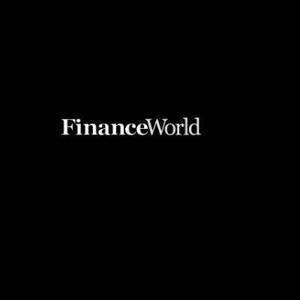The Gulf has faced its share of economic challenges, ranging from fluctuating oil prices to the ongoing effects of the COVID-19 pandemic. However, the region's business leaders have exhibited a commendable ability to adapt and diversify their economies. Governments across the Gulf Cooperation Council (GCC) have implemented strategic plans to reduce dependence on oil revenues, fostering economic diversification and sustainable growth.
Investments in sectors such as technology, renewable energy, and tourism have proven pivotal in mitigating the impact of oil market volatility. As a result, the Gulf Economy News are gaining resilience and becoming more robust in the face of unpredictable global economic conditions.
Technology as a Catalyst: The rapid advancement of technology has become a key driver of business transformation in the Gulf. From artificial intelligence and blockchain to smart cities and 5G infrastructure, businesses are harnessing the power of innovation to enhance efficiency and competitiveness.
Countries like the United Arab Emirates and Saudi Arabia are leading the charge in fostering a tech-savvy ecosystem. With initiatives like the UAE's "2030 Dubai Industrial Strategy" and Saudi Arabia's "Vision 2030," the Gulf is positioning itself as a global hub for technological innovation and entrepreneurship.
Entrepreneurship and Start-up Ecosystem: The Gulf's embrace of entrepreneurship has been a catalyst for economic growth, with governments actively supporting start-ups and small businesses. Incubators, accelerators, and funding initiatives are nurturing a vibrant ecosystem that encourages innovation and fosters the development of new ideas.
Start-ups in the region are making waves in various industries, from fintech and healthtech to e-commerce and renewable energy. The agile nature of these enterprises contributes to the overall economic diversification agenda, creating a more resilient business landscape.
Sustainable Business Practices: Sustainability has become a central theme in Gulf Business News strategies. Recognizing the importance of environmental responsibility, companies are integrating sustainable practices into their operations. The push for renewable energy sources, eco-friendly initiatives, and green technologies is not only aligning businesses with global environmental goals but also contributing to long-term economic sustainability.
Gulf businesses are increasingly adopting circular economy principles, reducing waste, and embracing responsible supply chain practices. These efforts not only contribute to a positive environmental impact but also enhance the reputation of Gulf businesses on the global stage.
Global Collaboration and Trade: In an interconnected world, the Gulf is actively engaging in global collaborations and fostering international trade relationships. Agreements with major economic players and participation in international forums are positioning the region as a key player in the global economic landscape.
The diversification of trade partners and the exploration of new markets are vital components of the Gulf's strategy for economic growth. By establishing strong international ties, businesses in the Gulf are creating a more resilient and adaptable economic environment.


Write a comment ...